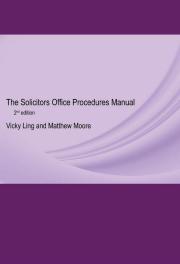In Brown v London Borough of Haringey [2015] EWCA Civ 483 the Court of Appeal considered the availability of legal aid for contempt proceedings in the County Court. It was considering an appeal against the committal for contempt of an elderly man who was found to have breached anti-social behaviour injunctions. In the County Court, he was unrepresented following the failure of his solicitor’s efforts to obtain legal aid.
The solicitor had applied both to the LAA, which said it was a criminal matter and to apply to the Court; and to the Magistrates Court that dealt with legal aid applications in the local area, which said it was a civil matter and to apply to the LAA.
Giving judgment, McCombe LJ analysed what he said was “disgracefully complex” legal aid legislation. The relevant analysis is set out at paras 26 to 37. McCombe LJ concluded that this was indeed a criminal matter (that is, that it fell within the criminal legal aid scheme and the solicitor needed a criminal contract). He approved the judgment of Blake J in King’s Lynn and West Norfolk Council v Bunning and anor [2013] EWHC 3390 (QB).
In cases in the Crown Court, High Court and Court of Appeal, the Court has the power to grant legal aid itself (which the Court of Appeal did, to allow Mr Brown’s representatives to be funded). But the County Court has no equivalent power. These are criminal applications which have to be made by criminal practitioners using criminal application forms. See also our posts on funding for new style anti-social behaviour injunctions here and here – this work can also be done by civil practitioners if the LAA is willing to grant an Individual Case Contract.





Reblogged this on | truthaholics and commented:
“In cases in the Crown Court, High Court and Court of Appeal, the Court has the power to grant legal aid itself (which the Court of Appeal did, to allow Mr Brown’s representatives to be funded). But the County Court has no equivalent power. These are criminal applications which have to be made by criminal practitioners using criminal application forms.”
Simon – I think the conclusion is (para [35]) that legal aid for county court contempt proceedings is to the LAA Director; but, as you say, in the High Court and Crown Court it is to the court. This still leaves the Munby P Ramet case (http://www.bailii.org/ew/cases/EWHC/Fam/2014/56.html) – not mentioned in Brown, where Munby P seems to leave open whether application can be made direct to a county court judge (and perhaps, after April 2014, to a family court judge). What a mess….
Yes, a mess… Determinations of representation by the Director in criminal cases are in practice delegated to HMCTS and applications are sent to the Mags Court. So in this situation a “determination by the director”. But an application to the LAA? Or to the court? And back to the buck passing that happened in this case. As was said at para 46, some standard directions may be needed.
They should have left all this work in the Magistrates Court!
Pingback: Applying for legal aid for contempt | Legal Aid Handbook